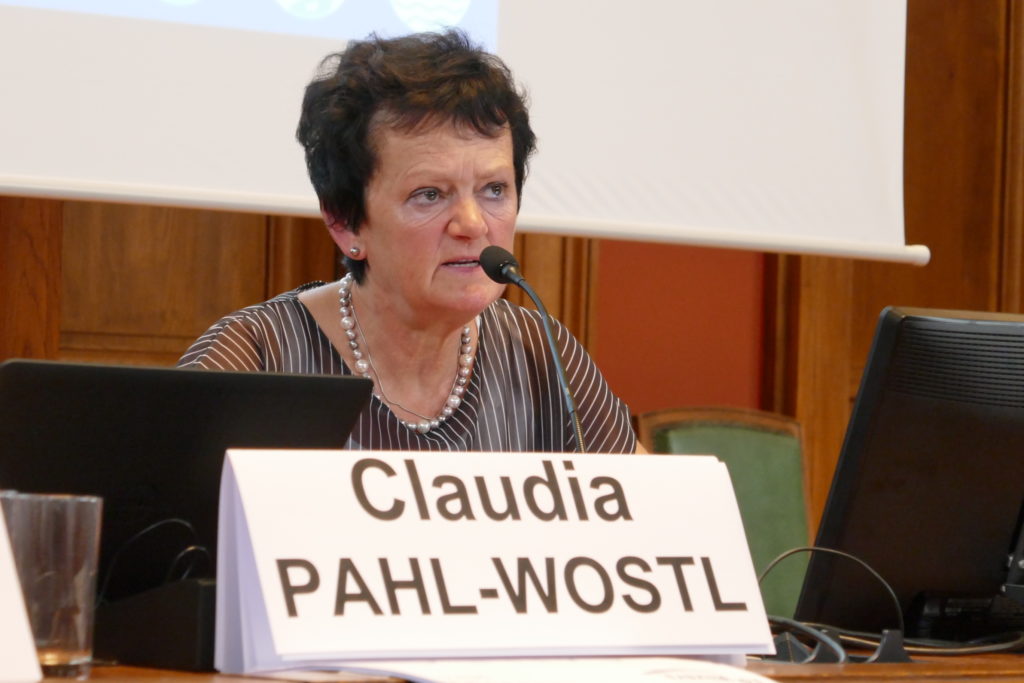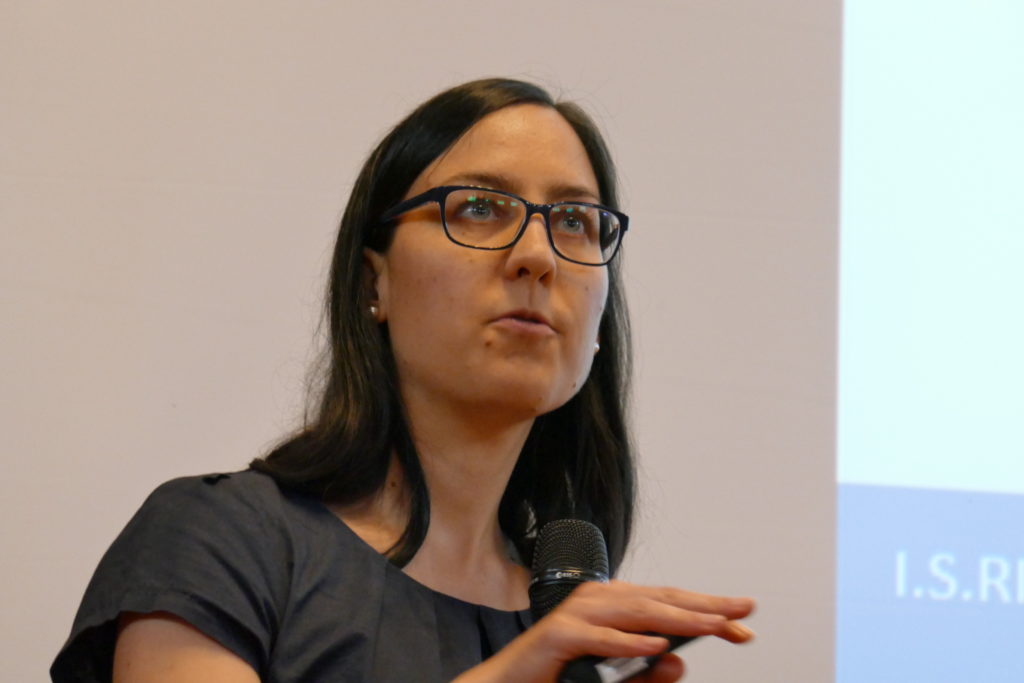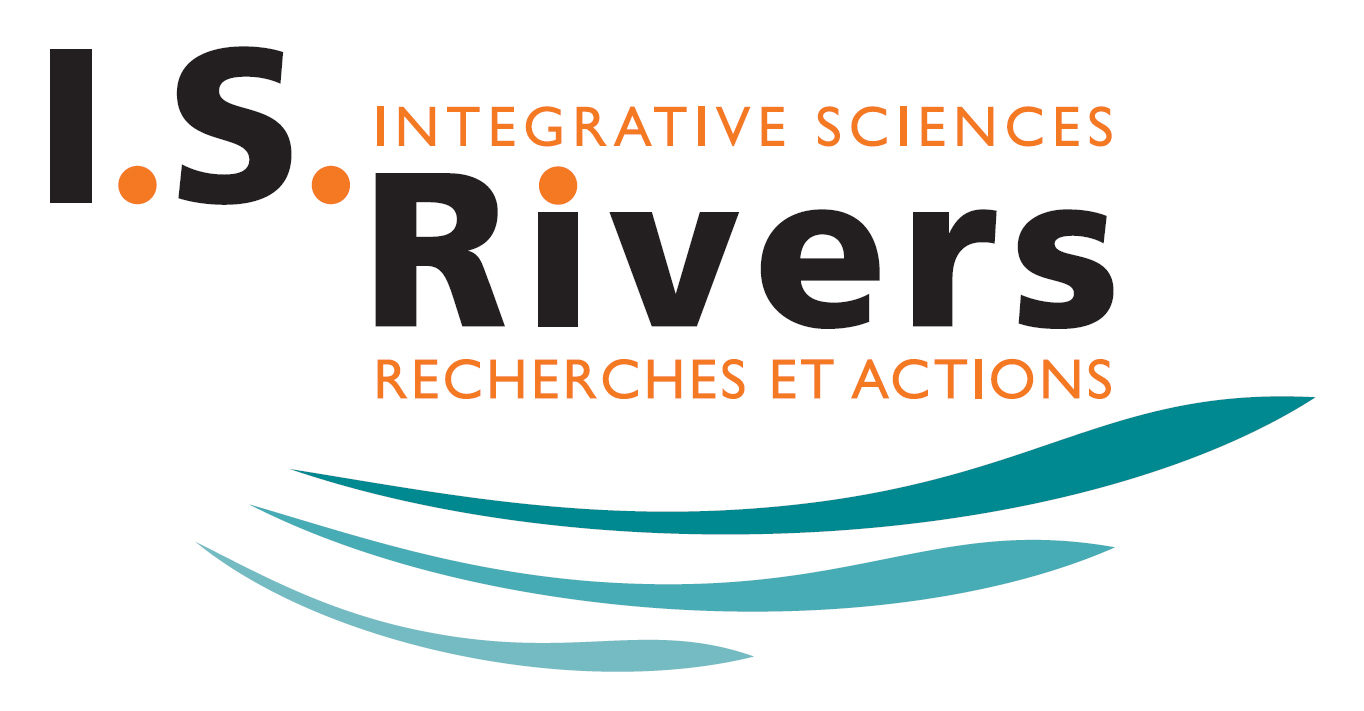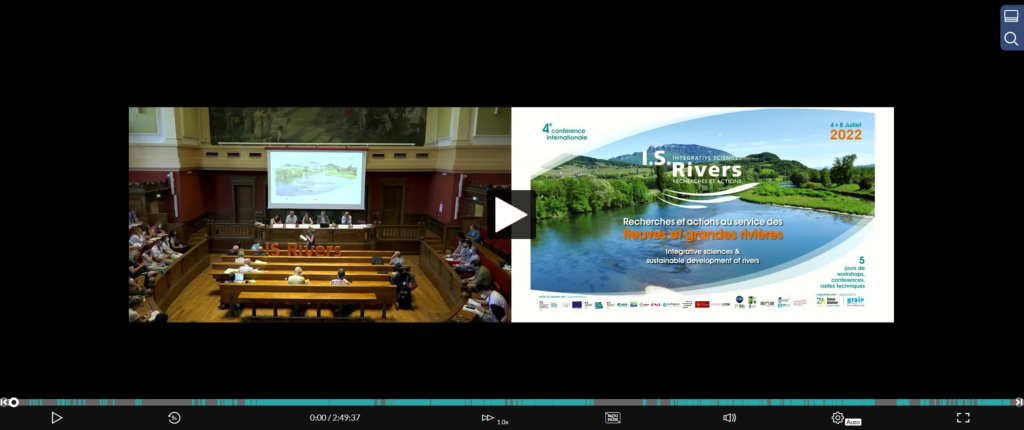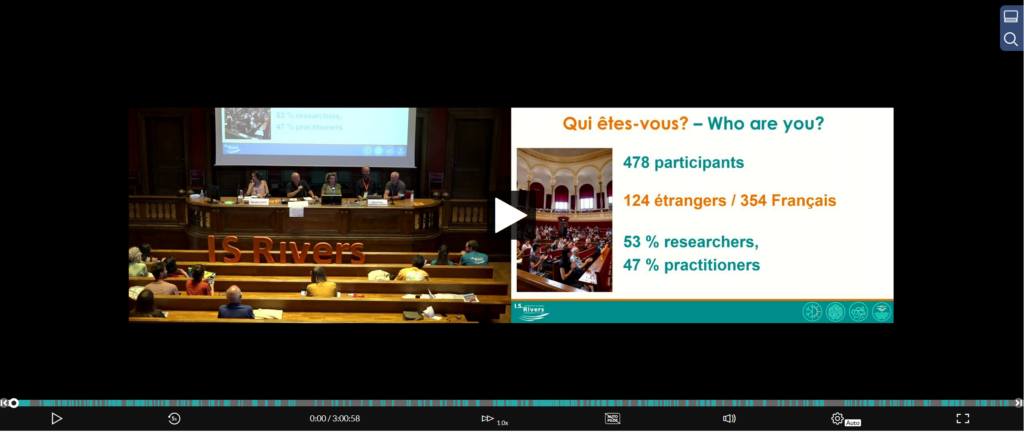Watch the 2022 opening plenary

Erik Orsenna
Erik Orsenna is an economist, author and member of the Académie Française. He specializes in sustainable development, environment, agriculture, and emerging economies.
Trained economist at London School of Economics, Erik Orsenna is currently an honorary State Counselor in France. He is the author of numerous novels (L’Exposition coloniale, winner of the 1988 Goncourt Prize) and reference writings on globalization (L’Avenir de l’eau, Voyage aux pays du Coton, Sur la route du papier, Géopolitique du moustique), he was elected to the Académie Française on May 28, 1998. Travel and the sea both play an essential role in his life. He is an ambassador for the international network of the Institut Pasteur and is Chair of Initiative for the future of great rivers, a public interest association that speaks out for rivers since its creation in 2015.
Ralph Schielen
Ralph is a senior advisor on Hydraulics, Morphology and Water Management at Rijkswaterstaat (part of the Ministry of Infrastructure and Water Management), which is the main governmental Water Management Authority in the Netherlands. He also holds a position as senior researcher at Delft University of Technology. Ralph’s research concerns the behavior of lowland rivers under climate change and anthropogenic interventions, with a focus on Rhine and Meuse. He advices Rijkswaterstaat on expected morphological changes in the river bed (on medium to long time scales) and how to handle that. Ralph also is involved in the application of Nature Based Solutions to establish resilient and robust river-landscapes, published in international journals about this and participated in international projects related to NBS. Ralph holds a PhD in Mathematics from Utrecht University.


Vikrant Jain
Dr. Vikrant Jain is Professor and Discipline Coordinator of the Earth Sciences Discipline and holds the responsibility of the Head of Natural Sciences at IIT Gandhinagar, India. He did his masters from IIT Roorkee, India and PhD from IIT Kanpur, India. He extended his research work as postdoc fellow at Macquarie University, Australia and University of Texas, USA. His research interests are in the field of fluvial geomorphology and Earth surface processes with special emphasis on river channel processes, sediment dynamics at different scales, geomorphic applications in stream management and river’s futures in the scenario of climate change and anthropogenic disturbances. Dr. Jain received prestigious National Geoscience Award-2018 by the government of India for his research contributions in River Science. He was also awarded the ‘Dr. Shankar Dayal Sharma Gold medal-2001 for being the Best Outgoing All round PG student’ at IIT Kanpur and Varahamihira Ministry of Earth Sciences (MoES) Chair position (2013-16) at IIT Gandhinagar.
Watch the closing plenary
Jeff Opperman
As WWF’s global lead freshwater scientist, Jeff works across the WWF network and with external partners to direct research that can strengthen conservation strategies and to integrate science into freshwater programs and projects. Jeff’s scientific and policy research has been published in journals such as Science, Nature, and BioScience and he is the lead author of the book Floodplains: processes and management for ecosystem services, published in 2017. Jeff strives to communicate the challenges and opportunities for nature conservation to broad audiences through op-eds, articles and blog posts in outlets including the New York Times, Foreign Policy, Outside, National Geographic, and the Guardian. He is a regular contributor to the energy and sustainability sections of Forbes.com. Jeff holds a PhD in ecosystem science from the University of California, Berkeley and a B.S. in biology from Duke University.


Rebecca Lave
Rebecca Lave is a Professor of Geography at Indiana University. Her research takes a Critical Physical Geography approach, combining political economy, STS, and fluvial geomorphology to analyze stream restoration, the politics of environmental expertise, and community-based responses to flooding. She has published in journals ranging from Science to Social Studies of Science and is the author of two monographs: Fields and Streams: Stream Restoration, Neoliberalism, and the Future of Environmental Science (2012, University of Georgia Press) and Streams of Revenues: The Restoration Economy and the Ecosystems it Creates (2021 MIT Press; co-written with Martin Doyle).
Olivier Ejderyan
Olivier Ejderyan is a geographer doing research on the water-energy-food-ecosystems nexus. He currently leads the Society and Innovation research group at the Research Institute of Organic Agriculture (FiBL Switzerland). His research focus on how policymakers, experts and communities deal with the tensions between different sectoral policies oriented towards sustainability. His research has contributed to the Swiss federal policy for subsidizing participatory measures for flood protection projects. He is also a co-author of the Federal guidelines for participatory project planning in river works. He has published in journals such as Energy Policy, Energy Research and Social Science and Sustainability Science.


Marie-Pierre Camproux Duffrène
Law professor at Strasbourg University (France), specialized in environmental law and health risks, Marie-Pierre is in charge of the Master’s degree “Environmental law, territories and risks” and of the interdisciplinary university diploma “Pollution, nuisances and resilience”. She is also co-director of the “Environment, health, sciences and society” axis of the SAGE laboratory (UMR CNRS n° 7363). Research on a theory of the natural commons and on the elaboration of a nomenclature of post-disaster health and ecological damages.
During each edition, prestigious speakers are present at the I.S.Rivers conference.
